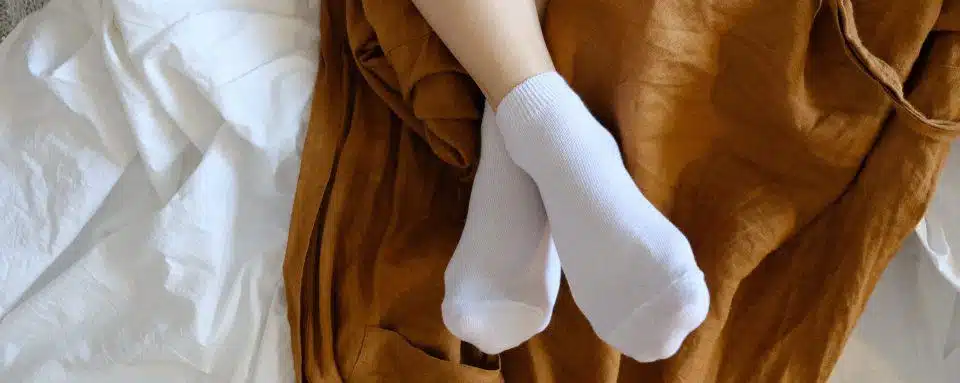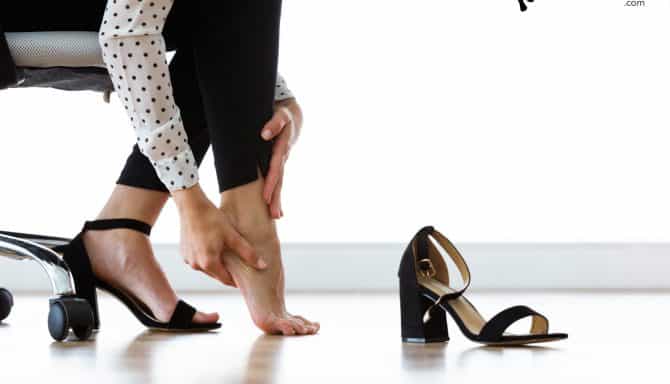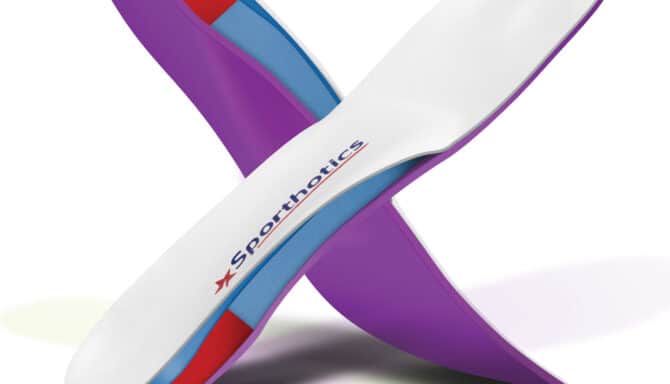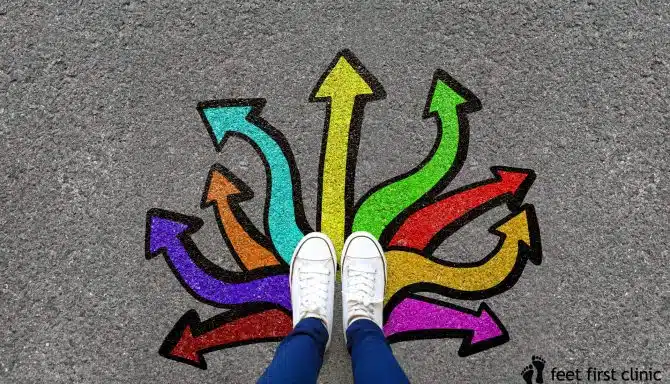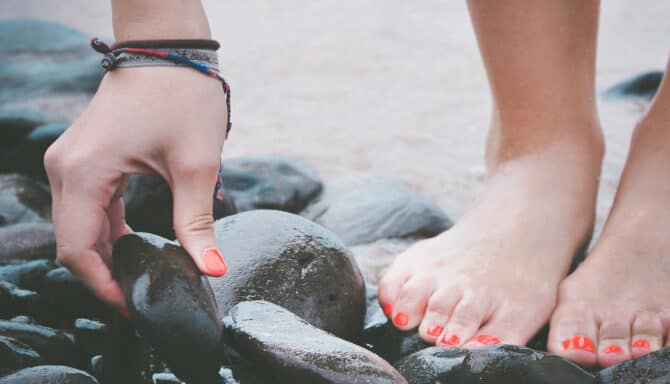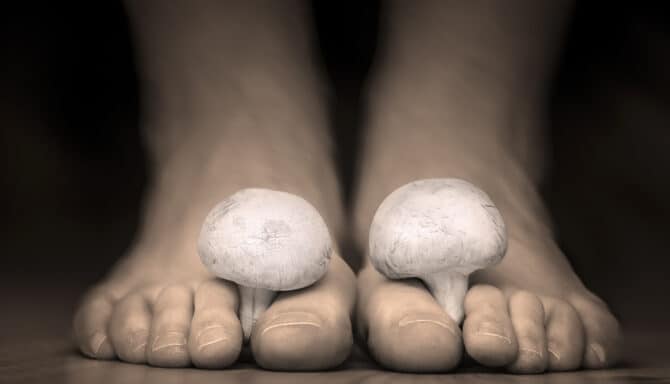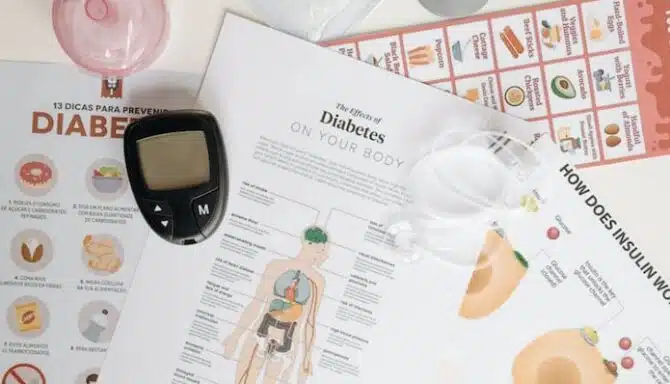With 250,000 sweat glands, your feet are prime to sweat, often more so than other parts of the body. That’s a lot of glands, and a lot of sweat. No wonder we get sweaty feet.
In fact, sweat rates of an adult can be up to 2–4 liters per hour or 10–14 liters per day (10–15 g/min·m2). Although sweaty feet is totally natural, excessive sweating can be a problem. Not only can it be a sign of a medical condition, it can also be burdensome to regularly wash, swap out socks, and apply antiperspirant. It may also be embarassing if you sweat excessively in public.
In this article, we’ll focus on sweaty feet, how to prevent and treat excessive sweating, and what it may be a sign of. But first, let’s do a brief overview of why we sweat in the first place.
Why do we sweat?
Sweating is primarily a means of thermoregulation, which is achieved by the water-rich secretion of the eccrine glands. When your body temperature rises, your body sweats in order to keep your core temperature down. Since evaporating sweat cools the body, and sweat releases heat, this is your body’s response to warm temperatures.
Not everyone sweats the same rate. Age, weight, muscle mass, health status, and fitness level all contribute to your sweat rate. External factors like humidity, temperature, or even eating spicy foods can cause your core body temperature to spike, and for your sweat rate to increase.
Possible causes of sweaty feet
Exercise
Not shockingly, exercise causes sweaty feet. As effort is exerted as part of exercise, your body’s response is to sweat in order to regulate temperature. The harder you exercise, the more likely you are to sweat. Same goes with higher temperatures.
Hyperhidrosis
Hyperhidrosis is abnormally excessive sweating. In this instance, excessive qualifies as sweat that’s unrelated to heat, or activity. Unfortunately, the exact cause of hyperhidrosis is unknown; however symptoms often stem from overactivity of certain sweat glands, and social or physical stress.
According to Yale Medicine, people of all ages can experience excessive sweating. Yale Medicine adds the following regarding hyperhidrosis:
- Hyperhidrosis tends to run in families.
- Some medical conditions (like menopause) can cause sweating.
- Certain medications can cause excessive sweating.
- The problem occurs despite the climate.
- More people probably have hyperhidrosis than are diagnosed.
If left untreated, excessive sweating can lead to certain foot conditions and toenail conditions including nail fungus and athlete’s foot.
Hot weather
It may sound obvious, but the weather and temperature affects your sweat rate. During the summer, when your body’s response to heat is greater than in cooler months, you sweat more. If you find you sweat excessively only in the summer or on hotter days, then this may be the leading factor.
Night sweats
Night sweats are repeated episodes of extreme perspiration. It’s often related to an underlying medical condition or illness. For example, menopause and diabetes can be underlying conditions for night sweats.
Why are my feet sweating but are cold?
Sweating can make feet feel cold when evaporation cools the feet quickly. This can often be caused by nervousness – literally “getting cold feet.” Lack of adequate blood flow to the feet through the arteries can also make the feet cold. In all these situations, the feet feel cold to the touch.
Is sweaty feet a sign of anxiety?
According to the International Hyperhidrosis Society, up to 32 percent of people with social anxiety experience hyperhidrosis. However, primary hyperhidrosis is not caused by anxiety; typically hyperhidrosis is a secondary symptom of social anxiety disorder.
Is sweaty feet a sign of diabetes?
People with type 1 diabetes may find that they sweat excessively in the upper body but that the feet are less likely to sweat. Typically, people with diabetes sweat excessively because of: (1) low blood sugar levels, or (2) diabetes-related nervous system damage.
Additionally, those with diabetes may experience night sweats. This is due to low blood glucose levels during the night. Drugs used to treat diabetes can also cause sweat night sweats as a side effect, according to the Mayo Clinic.
Does sweat make my feet smell?
Sweat itself does not produce an odour. That’s because sweat is close to being pure water; sweat contains a small amount (0.2–1%) of solute.
But, if sweat stays on the skin too long, bacteria begins to grow, and breaks down the skin’s natural chemicals. Bad smelling sweat is known as bromhidrosis. This condition is the accumulation of bacteria, fungi, molds and yeast on the foot.
In order to rid your feet of sweat ASAP, you’ll want to wash your feet every day, use antifungal powders, apply antiperspirant, wear moisture-wicking socks, and invest in the proper footwear. We dive deeper into each of these methods and parts of your daily routine below.
How to get rid of sweaty feet
- Wash your feet every day: Regular washing and proper drying can help reset your feet. Moist skin on the feet increases the risk of bacterial and fungal infections on the feet.
- Dry your feet with antifungal powders: Sprays and powders can help prevent and absorb moisture to stop sweat build-up on your feet. Visit the clinic for a full lineup of foot products including those from industry-leading brand Gehwol.
- Moisture-wicking socks: The goal of quality socks is to draw moisture away from your feet. Light, breathable options are best.
- Breathable footwear: Opt for breathable footwear and avoid boots and formal shoes as often as possible.
- Alternate use of footwear: If you have a lineup of shoes, it’s best to alternate through them to ensure they’re dry upon each use. Not only will this be more comfortable, your shoes will have a longer lifespan as they won’t be as exposed to constant wear and tear in suboptimal conditions (ie: sweaty, damp, wet).
Worry not!
We pride ourselves in effectively communicating your concerns and needs as comfortable as possible. Call anytime to ask about your specific concern and we’ll make sure to provide actionable steps towards getting your feet as happy and healthy as possible!
Call us at 416-769-3338 or Book Your Assessment Today!
